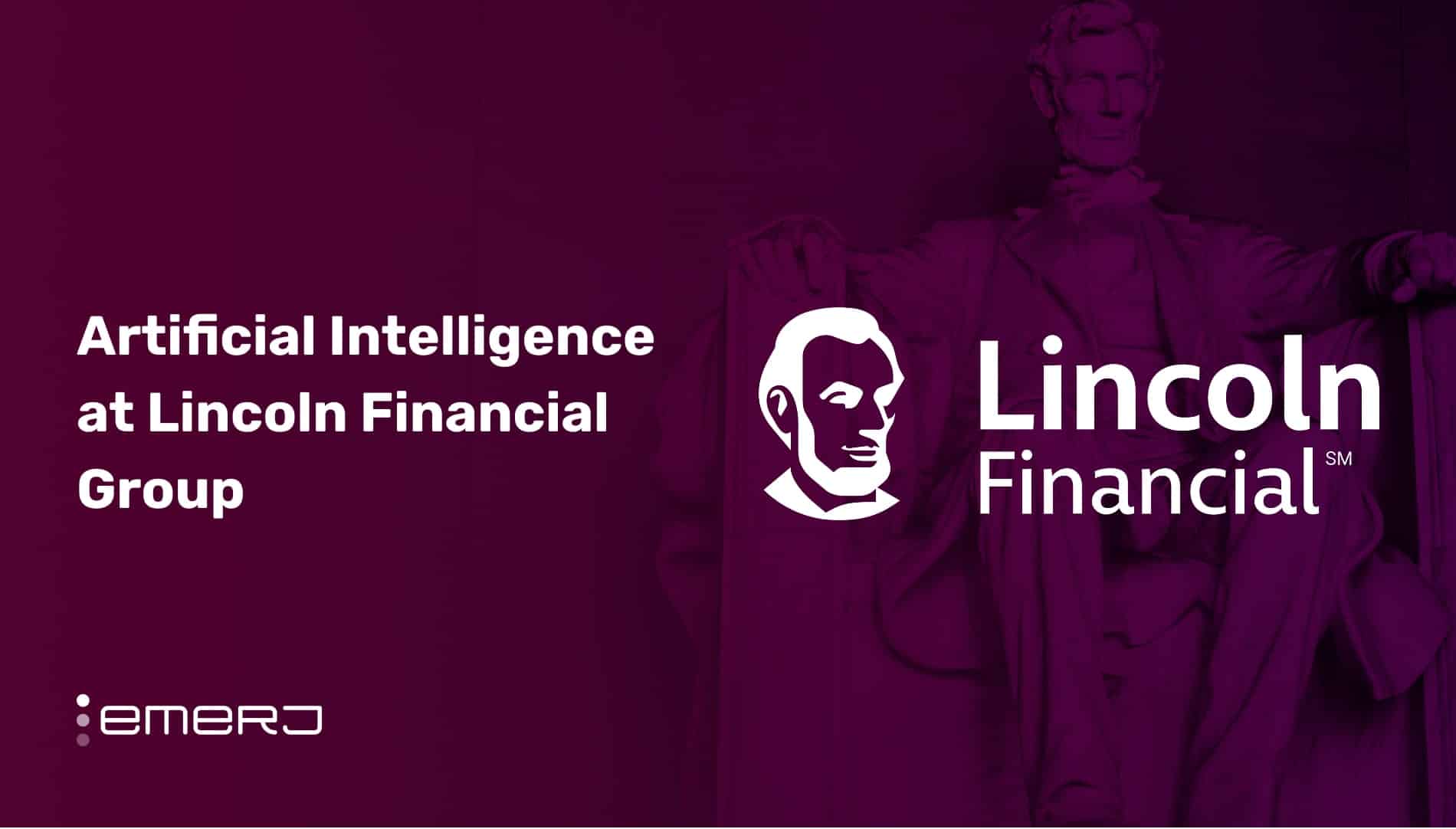Lincoln Financial Group (LFG), headquartered in Radnor, Pennsylvania, is a major U.S. financial services firm offering life insurance, annuities, retirement planning, and group protection. The company operates multiple offices nationwide and employs over 10,000 people as of 2024. For the year ended December 31, 2024, Lincoln Financial reported annual revenue of $18.44 billion and net income of over $3 billion, driven by strong business performance in group protection and annuities.
The company has made AI central to its business transformation program, pursuing a range of initiatives in claims, cybersecurity, and customer experience. One key project is its ongoing partnership with EvolutionIQ, an AI platform that helps claims professionals target their efforts for the highest-impact disability and group protection cases. It has also expanded its collaborations with tech leaders, such as Workday, for AI-driven benefits management.
This article explores two business use cases of AI at LFG:
- AI-powered claims guidance to drive insurance profitability: Leveraging machine learning to streamline claims triage, reduce administrative inefficiencies, and improve claimant satisfaction.
- Personalized outreach to drive sales wins: Personalized, compliant outreach to drive higher engagement and conversions.
AI-Powered Claims Guidance to Drive Insurance Profitability
Financial services and insurance companies face enormous operational costs due to growing claim volumes and administrative complexity. A study from Stanford University estimated that U.S. workers and employers spend approximately $21.6 billion annually navigating health insurance bureaucracy, including tasks such as triage, documentation, compliance, and dispute resolution, highlighting the scale of inefficiencies that also affect other insurance sectors.
In Canada’s public sector group disability insurance, employers paid $455 million in benefits in 2023, supporting 12,694 ongoing claims and experiencing a 6% year-over-year rise in new claim notifications. This rapid growth illustrates the increasing financial and operational strain placed on organizations by rising claim volumes and administrative demands.
Across the group and disability insurance sector, billions are spent annually; even modest inefficiencies translate into large-scale losses. Recognizing these challenges, LFG sought to transform its Group Protection business by increasing efficiency and focusing more on customer needs. According to the press release published by the company, LFG partnered with EvolutionIQ, an AI-driven claims guidance provider, to pilot the solution in its long-term disability segment.
Speaking at an event, EvolutionIQ’s COO and co-founder, Michael Saltzman, shared that the platform claims to utilize machine learning to analyze both historical and real-time claims data, prioritizing the most actionable cases and recommending next steps for claims examiners.
He also explained how EvolutionIQ’s AI-driven claims guidance platform works, analyzing both structured and unstructured claims data, including medical notes, examiner comments, and legal records. The platform utilizes advanced machine learning and natural language processing to identify underlying patterns and predict claim recovery trajectories with up to 95% accuracy.
The press release claims the results to be rapid and significant. Following the pilot’s success, LFG expanded EvolutionIQ across its group protection claims, reporting a 91% claimant satisfaction rate during 2023.
Based on Lincoln Financial Group’s 2023 and early 2024 financial reports, the partnership with EvolutionIQ to integrate AI claims guidance into its Group Protection business produced the following business results:
- Sustained growth in the Group Protection segment
- Margin expansion of 400+ basis points year-over-year, reaching 5.5% in 2023
- Operating income more than doubled, reaching $107 million in Q4 2024
- Further margin expansion of 430 basis points in Q4 2024, reaching 8.4%
Personalized Outreach to Drive Sales Wins
Sales teams suffer significantly when technology and enablement systems are not well integrated. According to findings reported by Bain & Company from their commercial excellence case studies, sellers typically spend less than 25% of their time with customers due to inefficiencies in sales processes and legacy technology.
According to a case study published by a vendor, LFG faced a significant challenge in modernizing its technology stack for sales enablement. Traditional systems lacked actionable data necessary to effectively deliver the right messages to financial professionals at the right time.
Wholesalers struggled with engagement insights, which impacted their ability to influence financial professionals and drive product adoption. The onset of the COVID-19 pandemic exacerbated the challenge, as day-to-day wholesaler activities shifted from in-person meetings to virtual interactions, necessitating a new approach to organizing and personalizing outreach.
LFG partnered with Seismic to deliver personalized, compliant product communications at scale, fitting seamlessly into wholesalers’ workflows.
According to the product website, the following is the workflow of this product:
- Content Personalization and Distribution: Wholesalers use Seismic’s customizable email templates to send compliant, personalized product information to financial professionals. AI guides the selection and distribution by ensuring the right state and federal regulatory-compliant content is shared.
- Integration with CRM: Seismic is integrated with Salesforce to pull contacts and leads based on reports, campaigns, and account data, allowing wholesalers to target relevant audiences efficiently.
- Engagement Insights: AI-powered analytics track over 300,000 emails monthly, tracking recipient opens, engagement duration, and interaction patterns through Seismic’s LiveSend technology.
- Follow-Up Optimization: Insights empower wholesalers to identify the most effective times and contacts for follow-up, whether through additional emails or meetings, thereby increasing conversion rates.
- Calendar Scheduling: Personalized emails include calendar links, facilitating quick and seamless meeting scheduling directly from outreach emails.


The case study also claims that LFG achieved 100% adoption of the Seismic platform among wholesalers through a strategic rollout involving key influencers, ongoing promotion via short videos, and communication from senior leadership.
The case study also quotes Phil Armas as referring to a wholesaler who received “95%” of their business wins from sending a single, simple email, followed by targeted follow-ups, which dramatically improved sales efficiency. In Emerj’s analysis, it isn’t easy to distinguish from the case study reporting how colloquial this context is or how reliable that figure is in a business context.
Source link
#Artificial #Intelligence #Lincoln #Financial #Group #Cases










